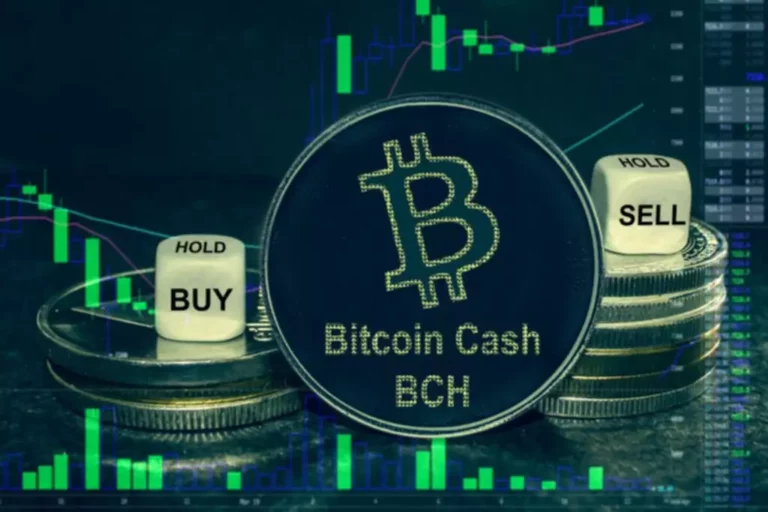We do not provide financial advice, offer or make solicitation of any investments. When comparing A-Book brokers and B-Book brokers, several factors come into play, each with its own implications for traders. No business model, including the A-Book and B-Book models, can guarantee a successful firm or a lucrative transaction. These models are only tools for doing business, and the extent to which you gain personally from them is solely dependent on your ability to apply them in a professional manner. If the US dollar would have strengthened against the pound, sending GBB/USD lower and you decided to close your CFD trade at the closing price of 1.3050, you would have lost $50.
If a B-book broker offers high leverage, it’s usually because they want you to blow your account – because they want your money. You can see here how the misalignment of incentives can be a problem. But high leverage is usually used by traders who are inexperienced anyway. But they still profit from the destruction of their own clients.
- Please share your inside tips and experiences for the benefit of our community.
- Traders should carefully consider their trading style, frequency, and the currency pairs they trade to determine which spread model suits their needs.
- Well, it’s not like there are secret fraternities of A-Book brokers that walk around in white suits releasing doves into the wild and saving homeless traders from the street.
- With regulation requiring best execution, the outcomes of both clients’ trades, no matter what the model, would be the same.
So your orders will more often than not, be shipped off to the interbank market. Imagine being in a situation where you consistently trade 5 lots on a commodity CFD and on each trade, you are banking thousands of dollars consistently. In the ECN model, each individual trader acts both as a Price Giver and a Price Taker. In the STP model, a trader sees only market makers’ orders in the Depth what is a book vs b book of Market, while in the ECN model, there are all existing orders with prices and volumes. B-Book brokers, also known as Market Makers or Dealing Desk brokers, operate by taking the opposite side of their clients’ trades. Instead of routing orders directly to the market, B-Book brokers act as the counterparty to their clients’ trades, effectively becoming the market for their clients.
It is important to ensure that the broker has mechanisms in place to handle client orders fairly and impartially. For example, when a trader places a buy order for a particular currency pair, the B-Book broker will sell that currency pair to the trader https://www.xcritical.in/ from their own inventory. This means that the broker profits when their clients incur losses and vice versa. While this model allows for immediate trade execution and liquidity, it introduces a conflict of interest between the broker and the trader.
B-Book brokers provide instant execution, a wide range of order types, and potential custom pricing but raise concerns about conflicts of interest and higher spread markups. Understanding the differences and considering individual trading preferences will help traders make an informed decision when choosing between A-Book brokers and B-Book brokers for their trading activities. A-Book brokers operate on a no-conflict model, acting solely as intermediaries between traders and the market. They have no financial interest in the outcome of traders’ positions.
ECN specification is here, Classic account specification is here. Compared with the volumes of interbank transactions, the internal volumes on the broker’s platform are too small. That is, the A-Book broker can’t compete with the B-Book one in terms of costs. Traders, in turn, do not really understand all these models, preferring more favorable conditions, thereby encouraging the activity of such kitchens. TradingBrokers.com is for informational purposes only and not intended for distribution or use by any person where it would be contrary to local law or regulation.
Nothing in this material is (or should be considered to be) legal, financial, investment or other advice on which reliance should be placed. No opinion given in the material constitutes a recommendation by FXCC or the author that any particular investment, security, transaction or investment strategy is suitable for any specific person. In some cases, such brokers may use a “dark pool” to disguise the actual location of where orders are fulfilled.

If a broker utilizes the B-Book model, it doesn’t necessarily mean that it is a kitchen (although such a probability is high). This may indicate that the broker fills small transactions within its platform. In contrast, large transactions, individually or in a pool, can be transferred to the liquidity provider and then to the interbank market Forex. This is the so-called the hybrid of A-Book and B-Book models. An example of such a model is a combination of cent (B-Book) and ECN (A-Book) accounts.
Depending on the setup of a particular LP, they can stay within their liquidity pool or get passed to other LP’s pools. A liquidity pool consists of many FX liquidity providers acting as a counterpart to the trades flowing out from a Forex Broker. If you are trading through a B-book trader and your account goes into the negative, it really means nothing. The broker hasn’t lost any money, because they never sent your trades to a third-party. They can simply reset your account balance to zero if they want to, and because they don’t owe anyone any money on your behalf, it’s basically a fake debt.
The broker ‘bets against you’ and matches the other side of the trade themselves. As a hard-working, goal-oriented, and well-rounded person, I always strive to do quality work for every job I do. Faced with challenging tasks in life, I have developed the habit of thinking rationally and creatively to solve problems, which not only helps me develop as a person, but also as a professional.
76% of retail investor accounts lose money when trading CFDs with this provider. You should consider whether you understand how CFDs work,
and whether you can afford to take the high risk of losing your money. The first thing you need to know about B-book brokers is that they are operating under a popular concept. It is due to how they decide to trade against their clients. In this case, the trader is not linked directly to any liquidity pool. Also, your broker will be selling to you anytime a buy order is placed.
Please note that any cryptocurrency availability with any broker is subject to regulation. Another good choice when looking for A-Book Versus B-Book Brokers is
Roboforex. Roboforex Segregates clients funds and offers over 100 instruments. Established in 2007, and in operation for 12 years
IC Markets
have a head office in Australia. The material covered and the resources offered are for educational purposes only. Always do your own research and only execute trades based on your own personal judgement.

In some instances, B-Book brokers may use a dealing desk to manage their clients’ orders, which can introduce a delay in order execution. The foreign currency market is a continuously operating marketplace, open 24 hours per day, 5 days a week. Retail traders can use these markets to bet on the movement of currency prices through services provided by Forex brokerages. Bigger players in the Forex market include corporations, banks, and financial service providers — which makes this marketplace an integral piece of today’s global economy. It is estimated that more than 6 trillion US dollars are traded on the foreign exchange market every day. In fact, Forex brokers manage only a small percentage of this industry.
